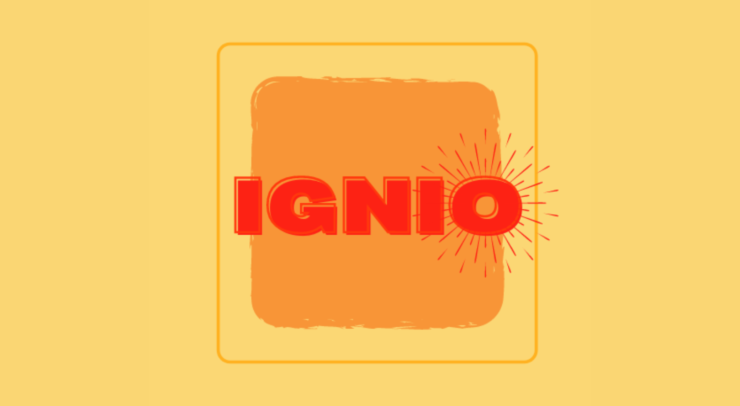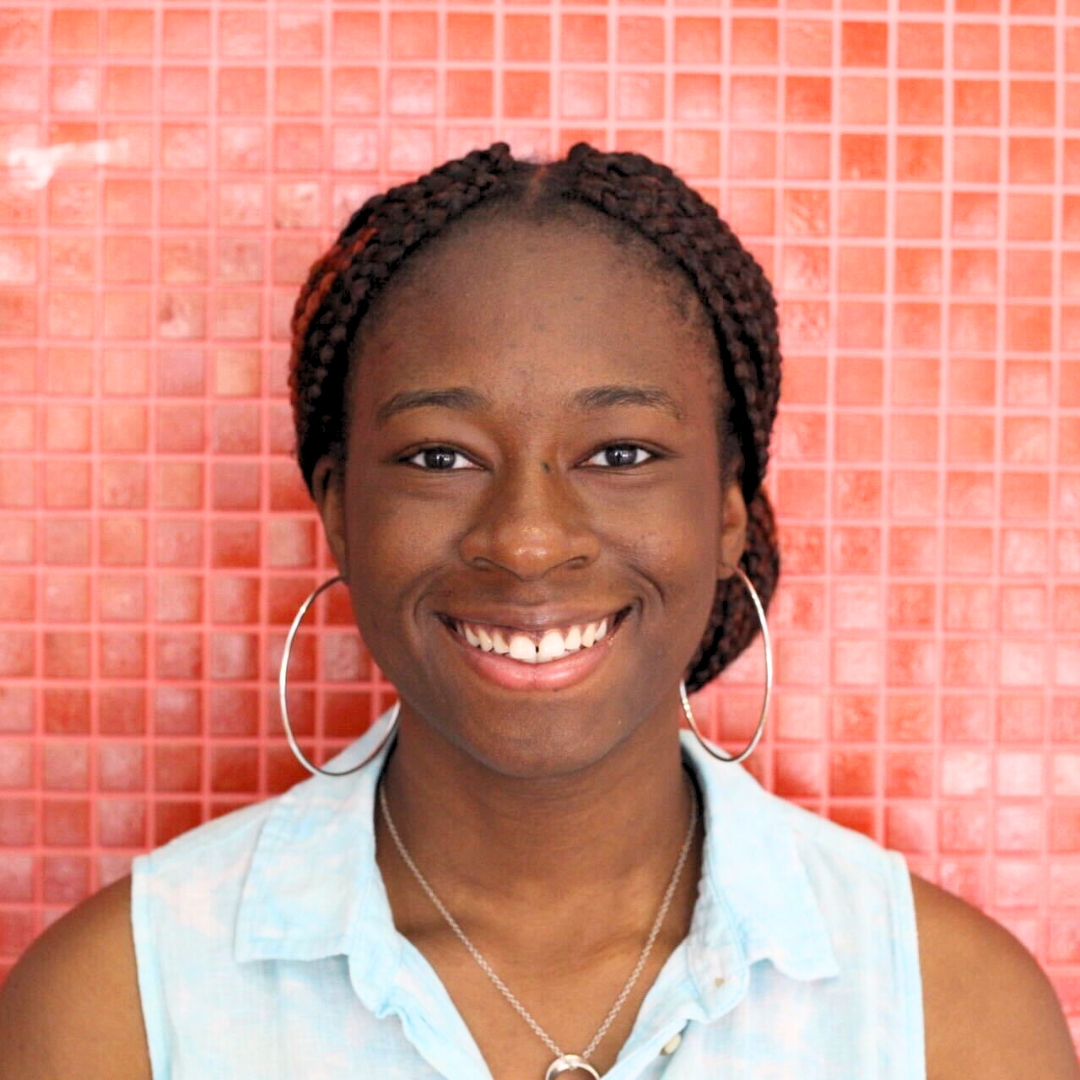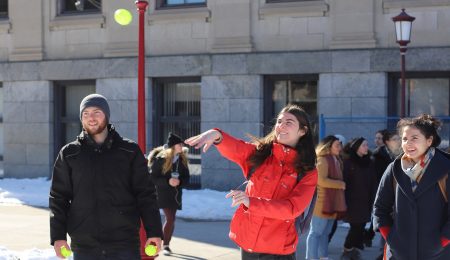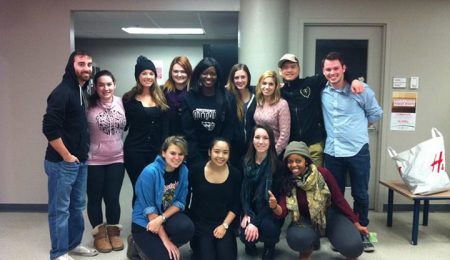The International Development Platform and Undergraduate Peer-Reviewed Journal
Editor’s note: the following interview has been edited for brevity and readability.
Fejiro Mejire, a staff writer for the Fulcrum, sat down with Nora Afifi and Mahanya Mallubhotla, the administration and liaison officers respectively of Ignio, to learn more about its mission and impact on U of O students.
The Fulcrum (TF):
Could you tell me your names, your positions, and how long you’ve been with Ignio?
Nora Afifi (NA):
Sure! My name is Nora Afifi. I’m a fifth year international development student at the University of Ottawa. I’ve been with the Ignio project since September 2022. I am the administrative officer at Ignio so I handle timelines, budgets, tasks, information management, set up, and inbox management.
Mahanya Mallubhotla (MM):
My name is Mahanya Mallubhotla. I am a fifth year international development student and I’ve been working with Ignio since August 2022. I am currently the liaison officer for Ignio. Most of my work happens when it comes to the publication time. I facilitate communications between Ignio and the authors.
TF:
Alright! What led to the creation of Ignio?
NA:
I wasn’t there when Ignio started up, but I will tell it as the story has been told to me. The Canadian Association for the Study of International Development, CASID, produces its own formal scholarly journal, the Canadian Journal of Development Studies (CJDS). Ignio was a youth offshoot of that journal. It was an initiative started by some University of Ottawa students in coordination with CASID to develop a youth platform for Development Studies curated more towards undergraduate and young professionals.
TF:
How was it like working in Ignio in the past versus now?
MM:
When I joined (I joined before Nora), I was very lost. A lot of the members were doing their masters degrees, so they were kind of doing things on their own timeline, and I was just happy to be there.
NA:
[The first generation of Ignio] kind of took care of things. However, it was not always smooth.
I think I can speak for all of us when I say we grew a little bit burnt out, maybe a little disillusioned with the project. It got to the point where we had to take a break. However, what made us come back was the goal. The intention of the project was to be a community space that encourages debates and discussion about international development. I was talking to some of these first, second year students and what I hear is there is a demand for our project amongst development students.
Political science students have yPolitika and history students have Clio, but we didn’t really have a space for us. That was what made me decide to take it on. I kind of just sprung out of bed one Saturday morning and I had it all in my head.
MM:
I was at a point where I didn’t have the energy to push anymore. However, I was also at a point where if somebody slightly pushed me, I’d go for it. So, I’m really grateful we are still going.
TF:
It sounds like it has been quite a journey. Currently, what does your publication cycle look like?
NA:
In the past, it was an ad hoc system: it was never a regular publication cycle. We have been going through some reforms and right now, we are working towards bi-annual publication cycles with volumes. Our next [fifth] publication is to be released in February 2025, in accordance with International Development Week (IDW). IDW is an annual conference that takes place in February for students in Development Studies. As we grow our community, we’re also hoping to have more creative pieces posted on a regular basis. Not necessarily in a formal journal, but just including them in our website as they come along.
TF:
What kind of pieces do you accept at Ignio currently, and what kind of pieces are you open to accepting in the future?
NA:
We have accepted videos, photos, papers and even a cookbook. We are open to formal and informal submission as long as it’s related to the publication theme: development studies. There are more details about submission requirements which you can find on the Ignio section of the CASID website. Since one of our objectives is to provide these academic publishing opportunities for students, we’d love to see more research projects that people have done. Things that they can put on their resumes and CVs for when they apply for graduate school.
MM:
Works have to be done with a lot of respect. There’s a lot of sensitivity and intention that needs to go into artwork submissions. We place emphasis on sincerity. This is because we understand that a lot of our students are frustrated with the fact that they have to stick to a certain syllabus or topic to get graded. At Ignio, they have the opportunity to explore creativity in their presentation style as long as they follow the Ignio criteria. We want to respect that sincerity and we want others to respect it too.
TF:
What kind of students is Ignio looking for as contributors?
NA:
Most of our recent submissions have been from students from universities across Canada. Most were not even for the University of Ottawa. We’ve gotten undergraduate student submissions from the University of Calgary, the University of Toronto and more. We are open to undergraduate submissions from all over Canada regardless of program. If you’ve written something that is relevant to discussions and debates on international development, we would love to hear what you have to say.
TF:
If somebody was interested in getting involved with Ignio, either as a contributor or they wanted to be part of the Ignio steering committee, what should they do?
NA:
We just onboarded the last of our steering committee members for this year. However, if someone is interested in joining the steering committee next year, we always post those updates on our LinkedIn and Instagram whenever we are recruiting for anything. Our usual recruitment cycle from now on should be around April: the same time a lot of executive club positions open up. Our author recruitment will begin on October 1 until October 30/31st. Our call for editors is also open to everyone from October 1 to October 21.
What we’re looking for is people who want to do something for their community. People who want to engage in these discussions and debates about development studies. They have to be committed for the long haul because this is a volunteer role. If you think that’s you, we would be welcome to have you apply.
TF:
You mentioned earlier that this is the second generation Ignio team. Do you have any plans for Ignio moving forward?
MM:
We’re looking into the future and looking at getting students more involved, especially first, second and third years. We are trying to create a safe space for students to debate, to critique and feel safe doing it.
NA:
Right now, Ignio is just an undergraduate student journal. However, our long term goal remains the same as the people who started this initiative: building a community for people to talk about international development issues which are really heavy and sometimes hard to wrestle with. They are often topics that are complex, charged and personal. They require nuanced discussion and we will be exploring different avenues to generate those discussions: podcast episodes, forums, drop in articles or even something else. We really see a bright future for this initiative, and not just for students at the University of Ottawa, but for students anywhere across Canada.
Interested in getting in touch with Ignio? Send an email to ignio@aedsa.ca, check out their Instagram page or their LinkedIn profile.






